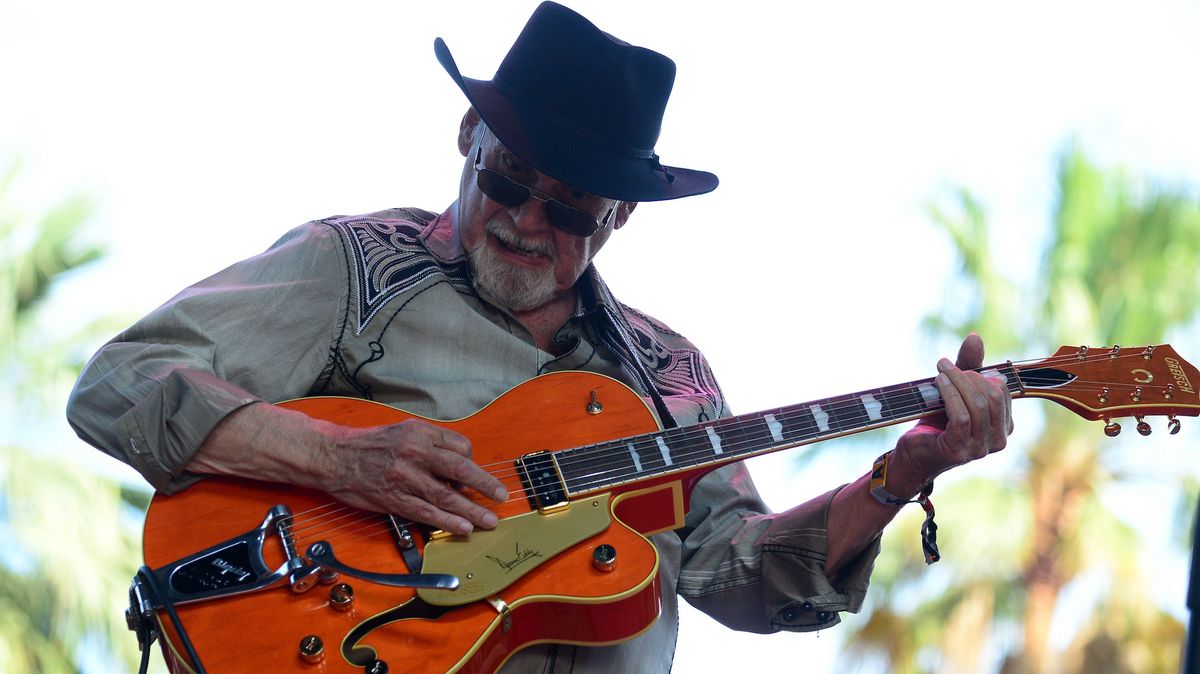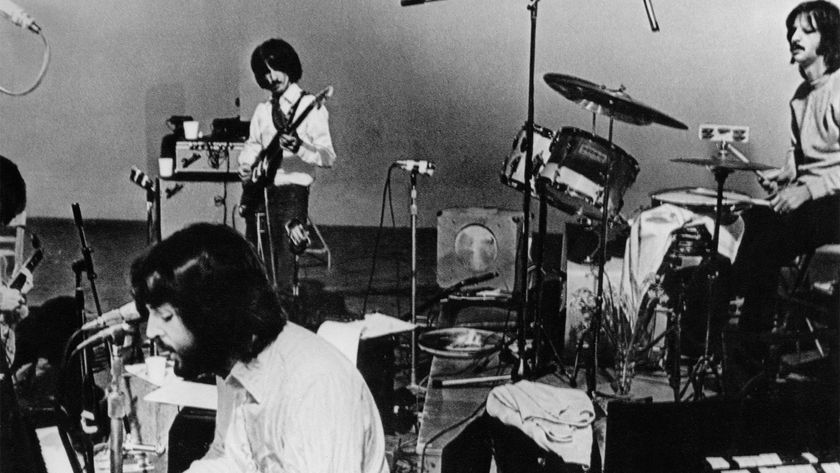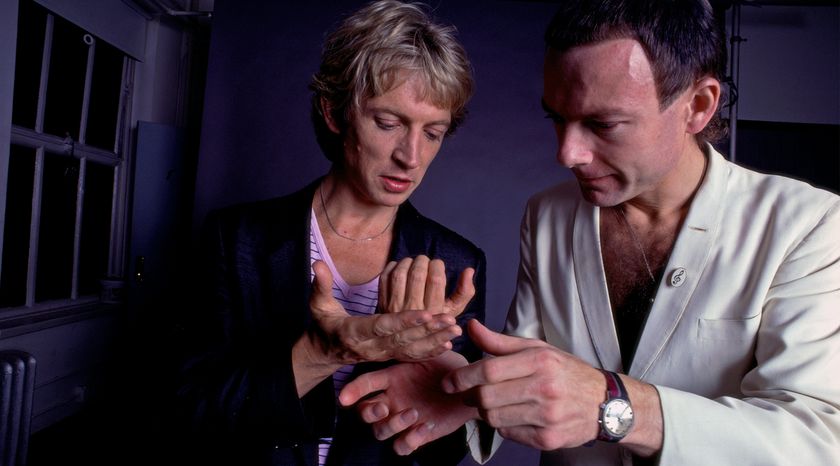“The first rock and roll guitar god”: Instrumental guitar legend Duane Eddy has died at 86
Through twanging, Gretsch-powered hits like Rebel Rouser, Eddy helped define the guitar sound of early rock 'n' roll

Duane Eddy, a Gretsch-wielding rock 'n' roll legend who helped pioneer the rock guitar instrumental, died Tuesday (April 30) at his home in Franklin, Tennessee at the age of 86, the Arizona Republic reports.
A tremendous influence on generations of guitar players, Eddy's none-cooler, twanging tone helped define an era, and break new sonic ground for the instrument.
A native of Corning, New York, Eddy picked up the guitar as a child, and became more serious about the instrument after his family relocated to Arizona in his teen years.
Heavily influenced by country, Eddy picked up a Gretsch Chet Atkins model while still in his teens, beginning an association with Gretsch that would last for the remainder of his life.
With the help of producer Lee Hazlewood, Eddy moved away from strictly country music to instrumentals, developing a riffing style that was heavy on the low strings. Eddy's signature guitar approach can already be heard in his first hit, 1957's Moovin' and Groovin'.
It was 1958's Rebel Rouser, though, that would become Eddy's signature smash.
“I was playing a rock and roll show in L.A. and thought I needed something that I could play as I was walking out to the stage, with the lights coming on,” Eddy told Guitar Player in 2020. “Then, when I got to the center, the band could kick in.”
Get The Pick Newsletter
All the latest guitar news, interviews, lessons, reviews, deals and more, direct to your inbox!
Rebel Rouser was coated in thick reverb, which came courtesy of Audio Recorders studio's makeshift echo chamber, a 2,000-gallon water tank stationed in the studio's parking lot.
“We spent about two hours, starting at 9 a.m., working on the melody and how it would move through the keys before we recorded it,” Eddy said. “In those days, the equipment was very primitive, and we only had three tracks.
“I used my Gretsch 6120 on that, and I was plugged into a souped-up Magnatone amplifier. It ran at 100 watts and had a JBL speaker and a tweeter. It stayed clean and wouldn’t break up no matter how hard you hit the note.”
Rebel Rouser was an instant smash, and served as the centerpiece of Eddy's 1958 debut album, Have ‘Twangy’ Guitar Will Travel. Peaking at #5, the LP spent a whopping 82 weeks on Billboard's album charts, and firmly established Eddy as one of the biggest guitarists of his era.
From there, Eddy embarked on a remarkable run of commercial success, with 16 top 40 hits over the next five years. Ironically, Eddy's run of hits would be largely stalled by the British Invasion of bands for whom Eddy was a huge influence.
Nonetheless, Eddy remained a guitar hero for multiple generations, re-working the Peter Gunn theme (which he had first covered in 1960) with the synth-pop band Art of Noise in the mid-'80s, and, more recently, working with the Black Keys' Dan Auerbach on his 2017 solo album, Waiting on a Song.
Creedence Clearwater Revival's John Fogerty, for one, referred to Eddy as “the first rock and roll guitar god.”
Eddy remained an energetic live performer well into his '80s. Of his live performances, Joe Bonamassa said, “If you get the chance to see him live, do it. He’s fantastic, tells great stories, and is a genius on the guitar!”
When asked by Guitar Player in 2020 about performing Rebel Rouser 60 years after its release, Eddy's passion for the guitar shone through.
“I love to play it, even now, and I always play it like it’s the first time.”

Jackson is an Associate Editor at GuitarWorld.com and GuitarPlayer.com. He’s been writing and editing stories about new gear, technique and guitar-driven music both old and new since 2014, and has also written extensively on the same topics for Guitar Player. Elsewhere, his album reviews and essays have appeared in Louder and Unrecorded. Though open to music of all kinds, his greatest love has always been indie, and everything that falls under its massive umbrella. To that end, you can find him on Twitter crowing about whatever great new guitar band you need to drop everything to hear right now.

"I don’t like collector's items. I said, ‘Give me the blue one.’" Chrissie Hynde reveals the origins of the 1965 Fender Telecaster she's played since the dawn of the 1980s

"I wrote it in five minutes the night before.” How a candid moment caught on camera became the final Beatles song the band recorded together







